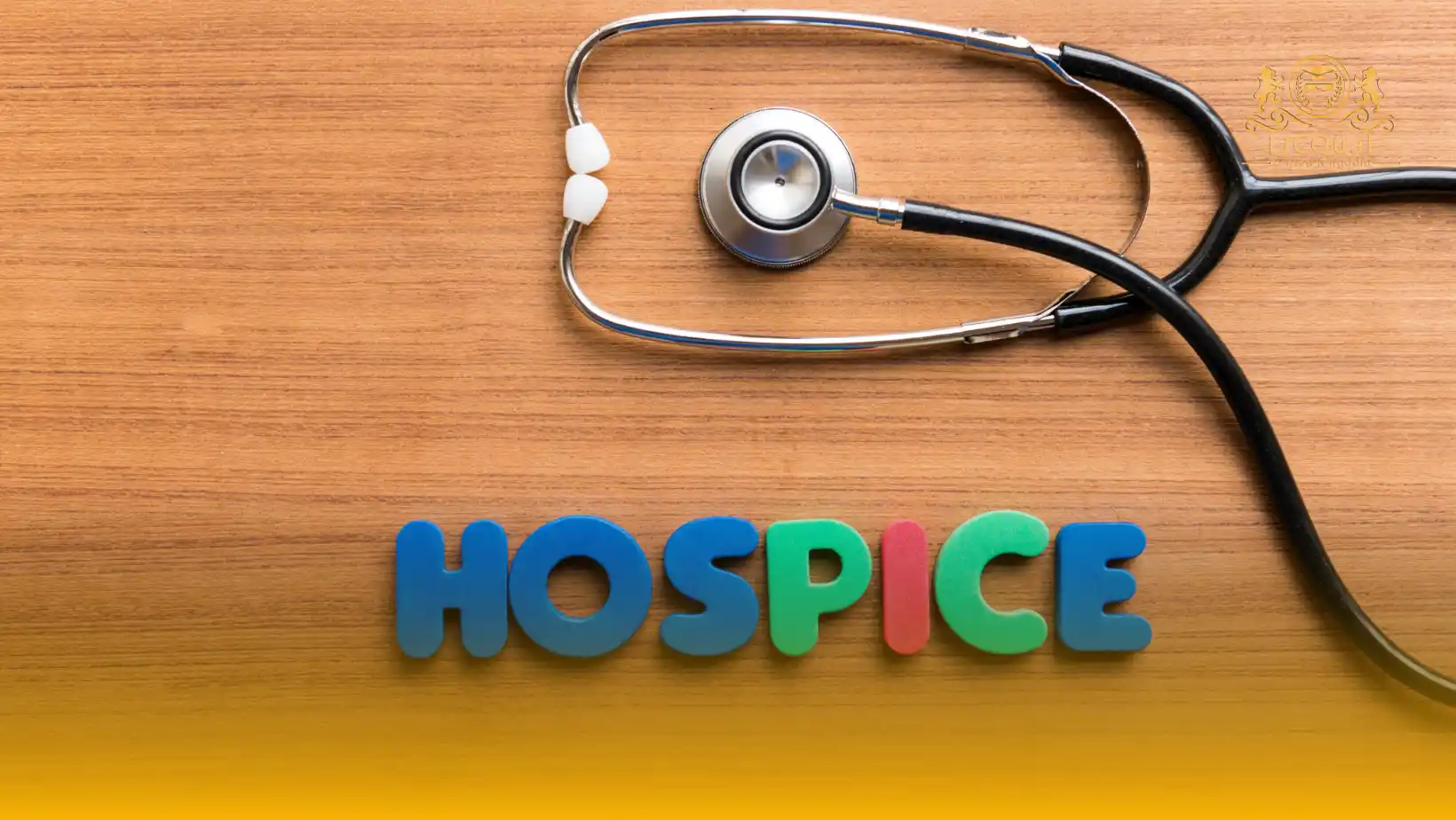The LICQual Level 6 Diploma in Palliative Care and Hospice Medicine (Dip PCHM) is a specialised qualification designed to support healthcare professionals in advancing their knowledge and skills in the sensitive and vital field of palliative and end-of-life care. This programme is not intended for fresh candidates; it is aimed at experienced practitioners who wish to enhance their career prospects, deepen their clinical expertise, and strengthen their Continuing Professional Development (CPD).
Palliative care and hospice medicine require a unique combination of medical competence, compassionate communication, and ethical decision-making. Through this advanced diploma, learners will develop the ability to manage complex symptoms, provide holistic support to patients and families, and apply evidence-based practices to improve the quality of life for individuals facing serious or life-limiting illnesses. The qualification also equips learners with the skills to work within multidisciplinary teams, contribute to service development, and uphold best practices in both clinical and community healthcare environments.
Centres delivering this qualification must ensure that they have competent and qualified staff who bring professional expertise to the teaching and assessment process. In addition, centres must provide access to appropriate resources, learning materials, and facilities to guarantee a high-quality educational experience.
By completing this diploma, learners will be able to integrate advanced clinical knowledge with compassionate care principles, enabling them to make a meaningful difference in patient outcomes. The LICQual Level 6 Diploma in Palliative Care and Hospice Medicine (Dip PCHM) represents a valuable opportunity for healthcare professionals to expand their expertise and achieve excellence in this specialized area of medicine.
Course Overview
Qualification Title
LICQual Level 6 Diploma in Palliative Care and Hospice Medicine (Dip PCHM)
Total Units
6
Total Credits
120
GLH
480
Qualification #
LICQ2200941
Qualification Specification
To enroll in the LICQual Level 6 Diploma in Palliative Care and Hospice Medicine (Dip PCHM), applicants must meet the following criteria:
|
Qualification# |
Unit Title |
Credits |
GLH |
|---|---|---|---|
|
LICQ2200941-1 |
Foundations of Palliative Care and Hospice Medicine |
20 |
80 |
|
LICQ2200941-2 |
Symptom Assessment and Pain Management |
20 |
80 |
|
LICQ2200941-3 |
Communication, Counselling, and Family Support |
20 |
80 |
|
LICQ2200941-4 |
Clinical Decision-Making and Ethical Considerations |
20 |
80 |
|
LICQ2200941-5 |
Research and Evidence-Based Practice in Palliative Medicine |
20 |
80 |
|
LICQ2200941-6 |
Service Development, Policy, and Leadership in Palliative Care |
20 |
80 |
By the end of this course, learners will be able to:
- Unit 1: Foundations of Palliative Care and Hospice Medicine
By the end of this unit, learners will be able to:- Critically evaluate the principles, philosophy, and scope of palliative and hospice care.
- Analyse cultural, social, and ethical perspectives in end-of-life care.
- Assess international models and best practices in palliative medicine.
- Unit 2: Symptom Assessment and Pain Management
By the end of this unit, learners will be able to:- Demonstrate advanced knowledge of symptom assessment techniques in palliative care.
- Apply evidence-based approaches to pharmacological and non-pharmacological pain management.
- Critically evaluate complex clinical cases to improve patient comfort and quality of life.
- Unit 3: Communication, Counselling, and Family Support
By the end of this unit, learners will be able to:- Employ advanced communication strategies for discussing sensitive and end-of-life issues.
- Analyse the psychological, emotional, and spiritual needs of patients and their families.
- Demonstrate the ability to work effectively within multidisciplinary teams to provide holistic care.
- Unit 4: Clinical Decision-Making and Ethical Considerations
By the end of this unit, learners will be able to:- Apply ethical frameworks and principles to decision-making in palliative care.
- Critically evaluate case studies involving treatment withdrawal, advanced directives, and patient autonomy.
- Demonstrate understanding of legal, professional, and cultural implications of end-of-life care decisions.
- Unit 5: Research and Evidence-Based Practice in Palliative Medicine
By the end of this unit, learners will be able to:- Design and evaluate research projects relevant to palliative and hospice care.
- Critically analyse scientific literature and emerging evidence in palliative medicine.
- Apply research findings to improve patient outcomes and clinical practices.
- Unit 6: Service Development, Policy, and Leadership in Palliative Care
By the end of this unit, learners will be able to:- Evaluate models of service delivery in hospice and palliative care.
- Analyse healthcare policies, frameworks, and global guidelines that influence service provision.
- Demonstrate leadership and management skills for developing and improving palliative care services.
The LICQual Level 6 Diploma in Palliative Care and Hospice Medicine (Dip PCHM) is designed for experienced professionals who wish to deepen their expertise in end-of-life care, enhance their clinical practice, and strengthen their Continuing Professional Development (CPD). This qualification is not intended for fresh candidates; it is tailored for those who already have a professional background in healthcare and aspire to advance in palliative and hospice medicine.
This course is ideal for:
- Medical Doctors and Physicians aiming to expand their specialist knowledge in symptom management and palliative care practices.
- Nurses and Advanced Practitioners seeking to develop advanced skills in holistic patient care and family support.
- Palliative Care Specialists and Hospice Practitioners who want to refine their expertise and contribute to service excellence.
- Public Health Professionals involved in developing and implementing community-based palliative care strategies.
- Allied Healthcare Professionals such as physiotherapists, occupational therapists, and counsellors working in end-of-life care environments.
- Healthcare Leaders and Policy Makers responsible for shaping frameworks, policies, and service development in palliative and hospice care.
- Medical Researchers and Academics with an interest in evidence-based practice and innovation in palliative medicine.
By enrolling in this diploma, learners will gain advanced knowledge and practical skills that enable them to provide compassionate, patient-centred care, while also contributing to the development and improvement of hospice and palliative care services worldwide.
Centres delivering the LICQual Level 6 Diploma in Palliative Care and Hospice Medicine (Dip PCHM) must meet high academic and professional standards to ensure quality training and learner success. These requirements are designed to provide learners with a supportive and well-resourced environment that aligns with international healthcare and education practices.
To deliver this qualification, centres must have:
- Qualified and Competent Staff: Tutors and assessors must hold relevant academic qualifications and professional experience in palliative care, hospice medicine, or related healthcare fields. They should demonstrate competence in teaching, training, and assessment at Level 6 or above.
- Specialist Learning Resources: Centres must provide access to up-to-date learning materials, journals, case studies, and research databases to support advanced study and evidence-based practice.
- Appropriate Training Facilities: Delivery centres should have well-equipped classrooms, simulation resources, or clinical practice environments where applicable, alongside digital learning platforms to support blended learning.
- Effective Quality Assurance Systems: Internal quality assurance procedures must be in place to ensure fair, consistent, and reliable learner assessment and programme delivery.
- Comprehensive Learner Support: Centres must offer guidance, mentoring, and academic support services to assist learners in achieving success and maximising their professional development.
- Commitment to Continuing Professional Development (CPD): Centres should actively encourage both staff and learners to engage in CPD, ensuring continuous growth and alignment with evolving healthcare practices.
By meeting these requirements, centres can deliver a high-quality programme that prepares learners to apply advanced knowledge, ethical principles, and compassionate care in the field of palliative care and hospice medicine.
Assessment and Verification
All units within this qualification are subject to internal assessment by the approved centre and external verification by LICQual. The qualification follows a criterion-referenced assessment approach, ensuring that learners meet all specified learning outcomes.
To achieve a ‘Pass’ in any unit, learners must provide valid, sufficient, and authentic evidence demonstrating their attainment of all learning outcomes and compliance with the prescribed assessment criteria. The Assessor is responsible for evaluating the evidence and determining whether the learner has successfully met the required standards.
Assessors must maintain a clear and comprehensive audit trail, documenting the basis for their assessment decisions to ensure transparency, consistency, and compliance with quality assurance requirements.







